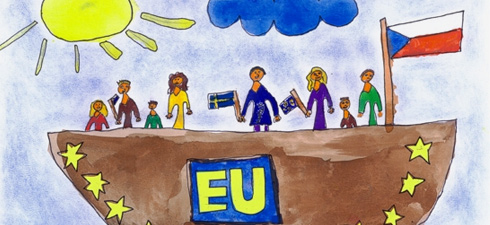It was supposed to be the grand finale of the Czech presidency of the EU: this June’s European Council summit, with all the EU heads of state in attendance. Instead, a boring summit is being held today under the presidency of a man [acting Czech Prime Minister Jan Fischer] most of the conferees have never met before. And like as not, all they are thinking is: “At least it isn’t Klaus” [the Eurosceptical Czech president].
For all the EU countries but the Czech Republic, this is just another high-level meeting. A summit without any great ambitions in the life of the European institutions, though it might come up with some answers to current European issues. It might formulate some EU commitments to Ireland with regard to the Treaty of Lisbon. It might make some headway on the preparations for the upcoming climate summit, on the regulation of the financial markets, even on the nomination of the European Commission’s next president. But the meatier matters will be tackled under the Swedish presidency [in the second half of the year].
From our point of view, this was an opportunity passed up. It’s sad to see how low the expectations are for this major “Czech” summit. In discussing this Council meeting, the European press broaches all manner of questions, but says virtually nothing about the Czech presidency. And what about the Czech government’s press conference, where the government vaunted their “extraordinary” summit agenda involving “issues of extraordinary importance” and the fact that, “given the extraordinary complexity of the agenda”, the prime minister had paid visits to all his European partners to prepare for it? Regrettably, this relentlessly reiterated word “extraordinary” is extraordinarily at odds with the reality. And the meetings attended by the acting prime minister of this “government of experts” have precious little to do with the political action one might expect a European Council president to take.
Fischer’s government has one saving grace, though: it averted the worst. After the fall of Mirek Topolánek’s government [in March], many people were wondering what would happen if Václav Klaus were to chair the European Council in June. Thanks to Fischer’s government and Klaus’s ultimately conciliatory stance, at least we dodged disgrace and an international crisis. This grey formal situation in which we find ourselves has allowed everyone to save face.
In truth, this scenario reflects the whole trouble with our relationship to the European Union: we always manage to avoid the worst, but far too seldom succeed in making the most of our potential. Leaving aside the “We’ll sweeten Europe” campaign [an ambiguous slogan, also meaning in Czech something like “We’ll give Europe a taste of its own medicine”] and Entropa [a controversial sculpture by Czech artist David Cerny playing on national stereotypes], as well as the bland, passive course of the Czech political helmsmanship, all things considered the machinery of the Topolánek presidency, serviced by competent officials, functioned fairly well.
We are always complaining about being a small nation incapable of asserting itself. And so we do nothing, telling ourselves contentedly: “There you go: as we’ve always said, the French and the Germans call the shots!”
The EU presidency could have given us some self-confidence. It could have shown that we are a European country that knows how to earn the respect of other nations and how to get results. Our response to the “gas crisis” was auspicious. But after that, zilch.
Thanks to the professionalism of our officials in Prague and our diplomats in Brussels, we have scored some points. But absent worthy political representation, their efforts are for all intents and purposes invisible. It is above all our politicians who make – or break – the Czech Republic’s reputation in the European Union and give our country some sway. And they have failed the test of Europe.
Was this article useful? If so we are delighted!
It is freely available because we believe that the right to free and independent information is essential for democracy. But this right is not guaranteed forever, and independence comes at a cost. We need your support in order to continue publishing independent, multilingual news for all Europeans.
Discover our subscription offers and their exclusive benefits and become a member of our community now!












